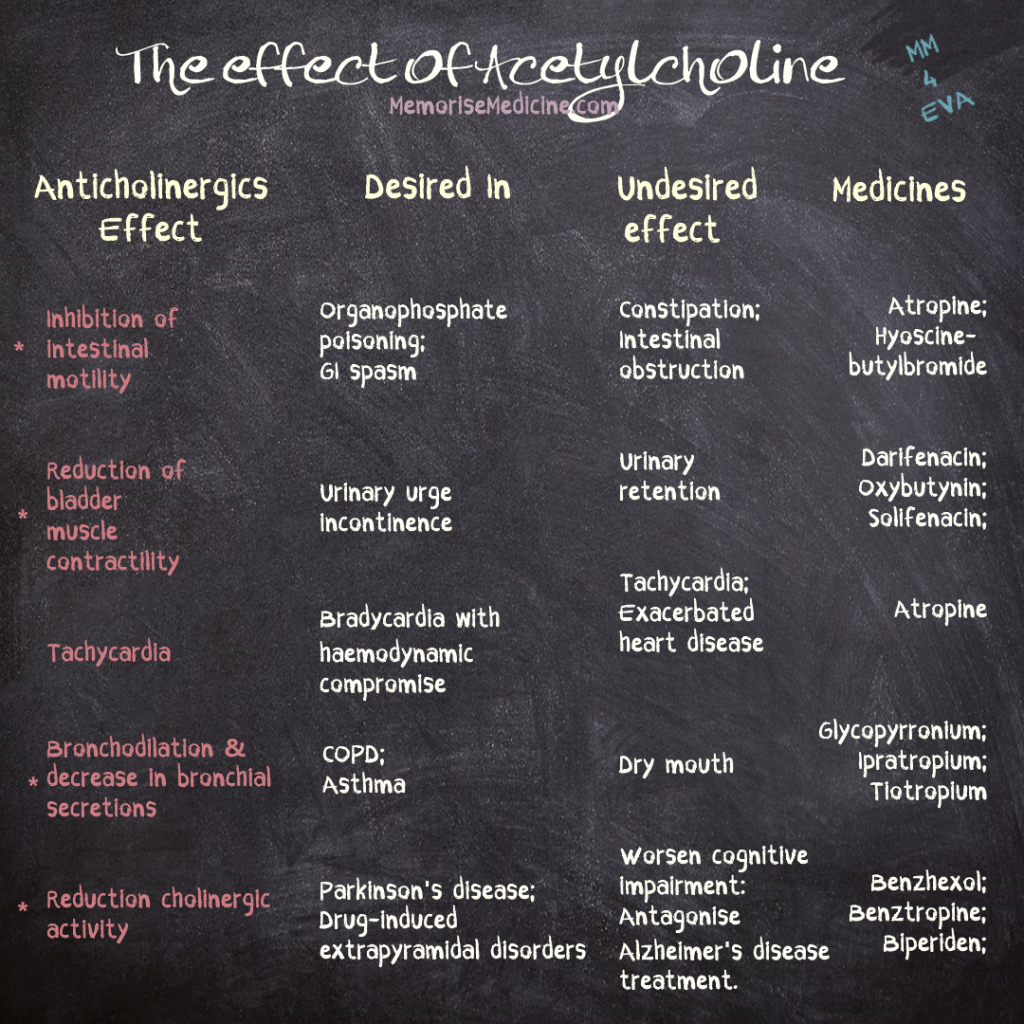
Every action a drug has on the body is an effect. Some of them are desired, and we use medicines with these desired effects, to treat certain conditions. Others are undesired; these get listed as the adverse effect of those medicines.
Remember this: Whether a medicine is giving a desired effect, or an adverse effect, is RELATIVE to the patient and their condition(s).
For an example of this, let’s look at acetylcholine. Blocking the muscarinic action of acetylcholine, with an anticholinergic, produces a number of effects in the body.
One of these effects is the reduction of bladder muscle contractility. Because of this effect, anticholinergic medicines, like benztropine, (used to treat Parkinson’s disease) can cause the adverse effect of urinary retention.
However, also because of this effect, we have anticholinergic medicines that treat urinary urge incontinence e.g. oxybutynin.
Both these medicines (benztropine & oxybutynin) are causing the anticholinergic effect, of reducing bladder muscle contractility. However, in one it’s a desired effect. In the other it’s an adverse effect.
Remember where a drug works and the effect it has there. This will make your learning easier in the long run.
If you like this post you might like to visit our website and book 🙂
MemoriseMedicine.Com. 100s of medical flashcards and study tips. Perfect for part-1 of the intern oral exam. 100% FREE!
‘Passing The Pharmacy Australia Intern Oral Exam: The Easy way.’ Amazon bestseller. Study tips. Exam strategies. 16 practice exams. Available here, Amazon Affiliate link: https://amzn.to/2YEyOfs
Affiliate Disclosure: As an Amazon Associate I earn from qualifying purchases. This comes at no charge to you. And helps with the development of Memorise Medicine.
Originally poster on Instagram: